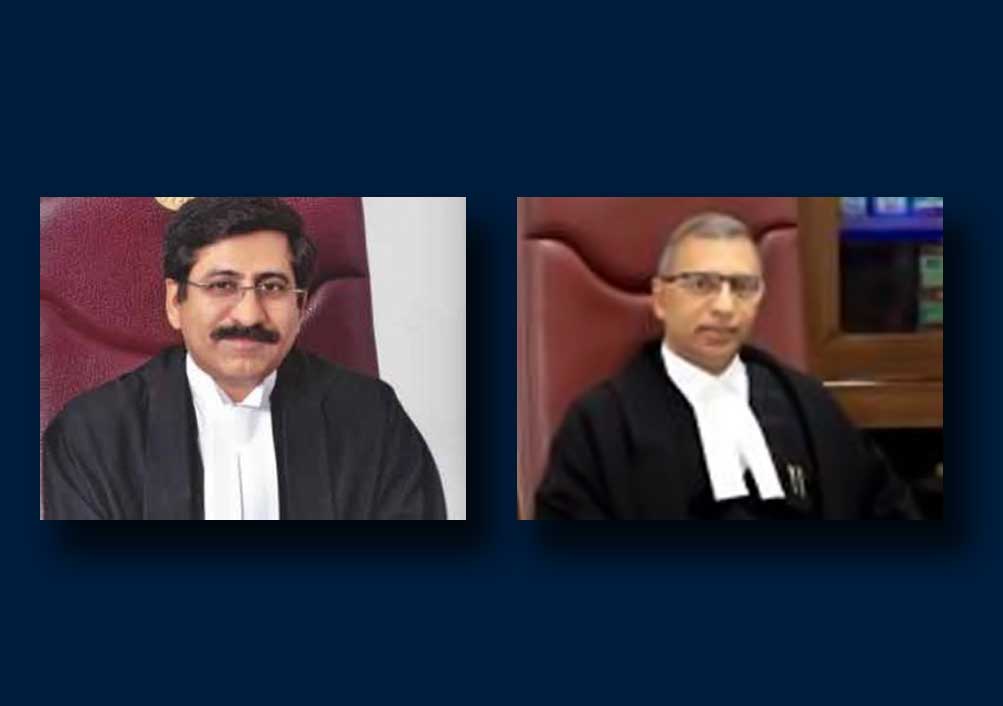In W.P.(C) 1146/2021-DEL HC- Admissions to medical colleges cannot be made beyond sanctioned annual intake capacity: Delhi HC dismisses plea of two Doctors seeking admission to PG Ayurvedic Course
Justice Sanjeev Narula [23-12-2022]

Read Order: DR AHMAD KAMAL AND ORS v. GURU GOBIND SINGH INDRAPRASTHA UNIVERSITY & ORS
LE Correspondent
New Delhi, December 31, 2022: While observing that the admission process in relation to any candidate has to be through counselling rounds, which cannot be directed at a belated stage, the Delhi High Court has clarified that as the admission process for PGAC 2022-23 is underway, granting admissions to the ayurvedic Doctors seeking admission to PG Course or conducting another counselling session would mean carrying-forward of two vacant seats from academic year 2020-21, which is not permissible.
Justice Sanjeev Narula dismissed the instant petitions by observing that the annual intake capacity has to be strictly adhered to and admissions to medical colleges cannot be permitted to be made beyond the sanctioned annual intake capacity. Considering that admission process for PGAC 2022-23 is underway, granting admissions to the Petitioner or conducting another counselling session at this juncture would in effect mean carrying-forward of two vacant seats from academic year 2020-21, which is not permissible.
In this case, the Petitioners – Dr. Ahmad Kamal and Dr. Kiran Gaur, were qualified doctors having a degree in Bachelor of Ayurvedic Medicine Surgery. Desiring to pursue three-year Post-Graduate Ayurvedic Course MD/MS (Ayurveda) for academic year 2020-21, with institutes under first respondent-Guru Gobind Singh Indraprastha University , they qualified All India AYUSH Post-Graduate Entrance Test 2020 wherein Dr. Kamal secured All India Rank 1579 with percentile of 89.78 and Dr. Gaur secured All India Rank 1358 with a percentile of 91.23.
Petitioners participated in counseling, as BAMS graduates of GGSIPU reserved 50% seats (out of total seats available for admissions) to BAMS graduates of GGSIPU. These seats reserved are referred to as ‘GGSIP University Quota’ (State Quota).
The petitioner were hopeful of securing a seat under Economically Weaker Section [EWS] category, on the strength of Income and Asset certificate issued by the second Respondent-Sub-Divisional Magistrate but unfortunately they couldn’t secure admissions and laid the blame for the same, on the University. They contended that the admission process had been marred with irregularities as the University has violated Article 15 of the Constitution of India, 1950.
Petitioners strongly protested against admissions granted to respondent-Candidates; however the same did not elicit a favourable response. Constrained by inaction, they had approached the High Court seeking cancellation of admission of respondent-Candidates under EWS category and issuance of mandamus against the University to admit Petitioners for academic session 2020-21.
The primary issue that required determination was whether petitioners’ non-selection was due to any fault on part of the University, and whether they were entitled to be considered for admission, in the year 2022-23.
As per the Bench, in order to be entitled to claim special relief of admission at this stage, promptness in action by the Petitioners, although essential, is not adequate consideration. It is also necessary for the Court to conclude that the action of authorities was arbitrary, unjustified and in violation of applicable rules/ regulations/ prospectus, having a bearing on the rights of the Petitioners.
To test the merit of the allegation of connivance against the authorities in the admission process as Ineligible Candidates were admitted on false EWS certificates, the Bench referred to teh process of issuance of EWS certificates.
As explained by GNCTD, when a person applies for issuance of an Income and Asset (EWS) certificate, they are required to give a self-declaration, in the form of an ‘Undertaking’, and also an affidavit which is required to be submitted along with list of documents, the Court noted.
In view of the same, the Bench said, “the person applying for an EWS certificate is solely responsible for the accuracy of declaration and information supplied by him/ her. This information is supplied and self-verified by the applicant being fully aware that the certificate shall be summarily cancelled, including all benefits arising thereunder (such as – admission, in the instant case), in case it is found that wrong declaration was made by a person/ candidate”.
According to the Bench, the Ineligible Candidates obtained EWS certificates, by giving wrong information/ declaration to the issuing authorities which were then relied upon by the University for granting admissions under EWS category. However, in this process, the Court was unable to discern arbitrariness, fault or patent illegality on the part of the University. Petitioner’s allegation of connivance unsupported by any evidence was vehemently denied by the University and remained unproved.
“It is reiterated that only in exceptional circumstances, where it is demonstrated that the fault is attributable to the university or where the officials/ authorities have acted in an arbitrary or recalcitrant manner in breach of the extant rules and regulations, can directions for adjustment of candidature in the next academic session be made. The circumstances narrated above do not indicate that University targeted and/or selectively deprived the petitioners”, the Court stated.
Noting that the annual intake capacity has to be strictly adhered to and admission process for PGAC 2022-23 is underway, the Bench dismissed the petition with the observation that granting admissions to the Petitioner or conducting another counselling session at this juncture would in effect mean carrying-forward of two vacant seats from academic year 2020-21, which was not permissible.
Sign up for our weekly newsletter to stay up to date on our product, events featured blog, special offer and all of the exciting things that take place here at Legitquest.




Add a Comment